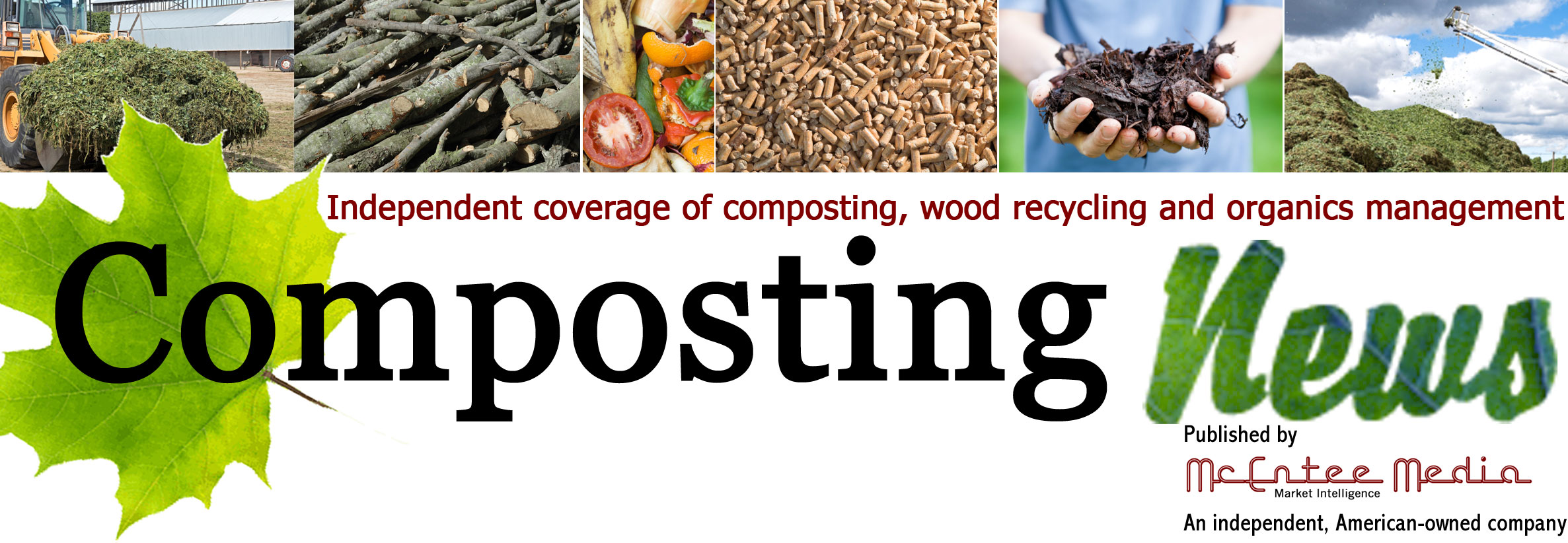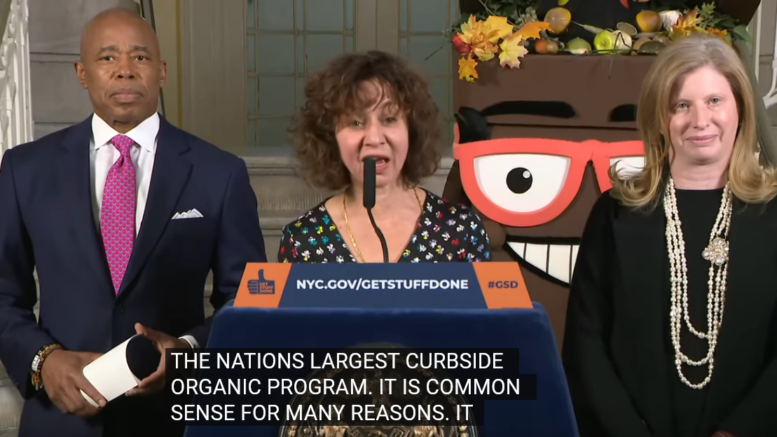Every New York City resident will have access to clean, convenient, curbside compost pickup from the city’s Department of Sanitation (NYDS) by the end of 2024, the city announced. The city said the plan will create the largest composting program in the country.
Curbside composting programs have existed in New York City for the last decade, but none have served more than about 40 percent of the city, NYDS said
“This will be the first-ever specific plan and commitment to reach 100 percent coverage citywide, providing residents with simple, universal weekly collection of leaf and yard waste, food scraps and food-soiled paper products,” said Mayor Eric Adams. “It is also the first program designed as a service for mass market use by all New Yorkers. For more than two decades, [the city has] been working to achieve citywide composting. I’m proud to announce we are getting it done. By reducing the food waste that we put into trash bags, our streets will look better, smell better and best of all will be dealing a blow to New York City’s number one enemy—rats.”
Adams laid out the plan for the next 20 months after announcing the program in his State of the City address.
The city developed what it called an effective, cost-effective pilot plan for curbside composting that began in Queens in October. The city said the program exceeded expectations in Queens as it diverted three times the material at less than a third of the cost on average per district compared to previous programs. The Queens model will now be expanded citywide.
About 12.7 million pounds of compostable material was diverted from landfills in the first three months of the Queens pilot program.
“For decades, New York City has been one of the nation’s largest takeout food offenders, sending billions of tons of food out of state, hundreds of miles away to be dumped in landfills,” said Meera Joshi, deputy mayor for operations. “Building on the commonsense approach used in the Queens organics pilot, we are announcing the reversal of this costly and carbon producing activity. Instead of creating more landfill, our food scraps will be separated, contained from rats and turned into renewable energy, biosolids and compost.”
DOS said the program is built on a number of efficiencies that drive costs down, including the use of dual-bin trucks and a right-sizing of the workforce to reduce overtime. The leaf-and-yard-waste-first approach was designed based on an analysis of successful programs in other cities, including Portland, San Francisco, Seattle and Toronto.
Unlike past composting programs, there will be no sign-up required for the new program. Residents will simply set out anything from their kitchen or their garden in a separate bin on their recycling day and NYDS will pick them up.
Manhattan, which will be the last borough to be phased into the service, will receive an additional 150 smart composting bins this spring to help residents separate their compostable material. The orange bins are an example of a successful pilot scaling broadly, NYDS said. From an initial group of 25 bins in Astoria, the city previously announced a plan to place 100 bins across all five boroughs, which, based on popularity, was later expanded to 250 in every part of the city. The bins are accessible 24 hours per day via a newly-designed app for iOS and Android called NYC Compost. The additional Manhattan bins will bring the total number bins to 400.
Smart composting bin service covers a number of traditionally underserved communities, including Bushwick, Bedford-Stuyvesant, Castle Hill, Harlem, Highbridge, the North Shore of Staten Island, Parkchester, the area around Queensbridge Houses and Washington Heights. Across those communities, the bins have been greeted by enthusiastic usage and have diverted pristine compostable material from landfill, DOS said. The additional 150 bins will be placed in central business districts and residential sections of Manhattan.
The program’s announcement comes on the heels of historic investments in other NYDS sustainability efforts—nearly $31 million in further funding in Fiscal Year 2023 since April 2022. The funding includes investments in a number of programs including the expansion of school composting to every New York City public school by next school year, a comprehensive waste characterization study and expanded funding for community composting.
As part of the Queens pilot, all borough residents this spring will be able to pick up 40-pound bags of New York City compost for use in their yards and gardens.
“Ensuring curbside composting is accessible to all New Yorkers is a tremendous step toward helping achieve our sustainability goals for our communities and the families who call them home,” said U.S. Rep. Adriano Espaillat (NY-13). “I commend Mayor Adams for the city’s curbside composting initiative and believe this project will help reduce the city’s carbon footprint and reaffirm our commitment to environmental justice by building a healthier and lasting legacy of sustainability for all New Yorkers.”
Expanding composting has been a top request from Manhattan residents for many years and a top priority of the City Council, which has put together a comprehensive legislative package for composting, said Councilmember Julie Menin.
“The successful rollout of borough-wide curbside composting in Queens has shown that the people of New York City want composting and that the demand is there,” she said.
More information is available in following video:
Follow us on social media:


Be the first to comment on "NYC announces nation’s largest composting program"